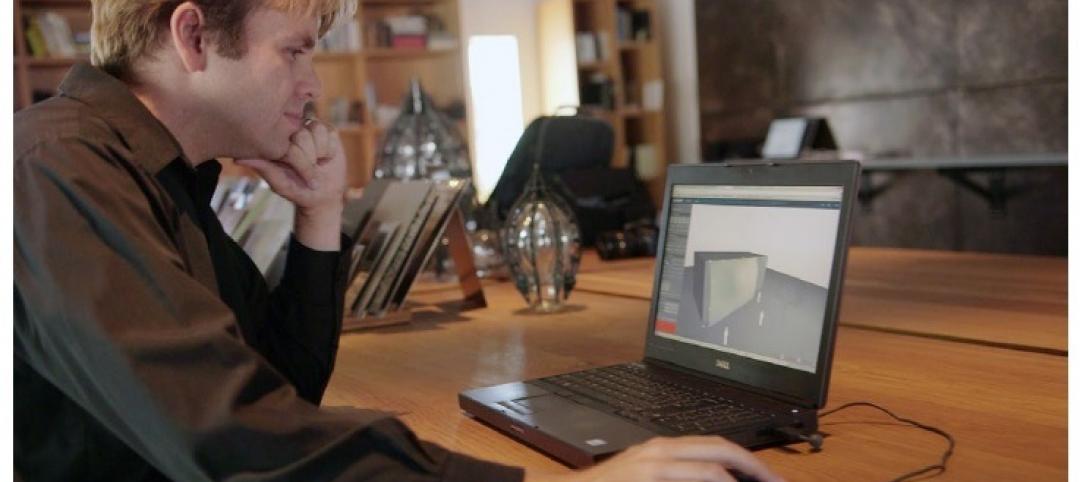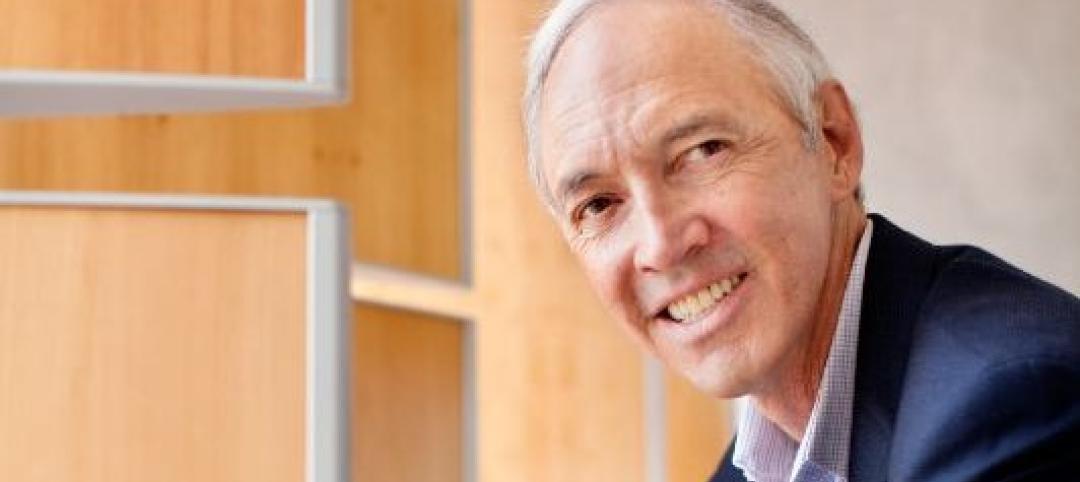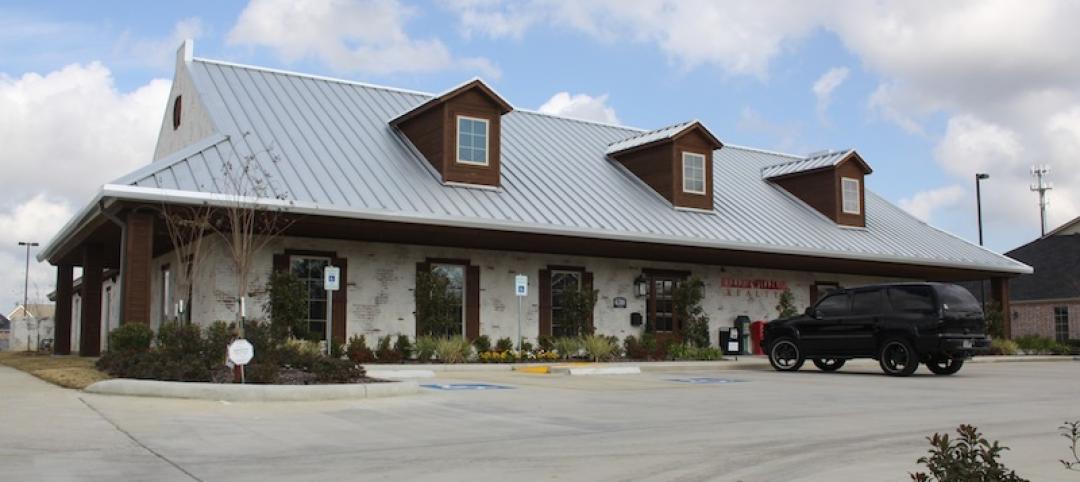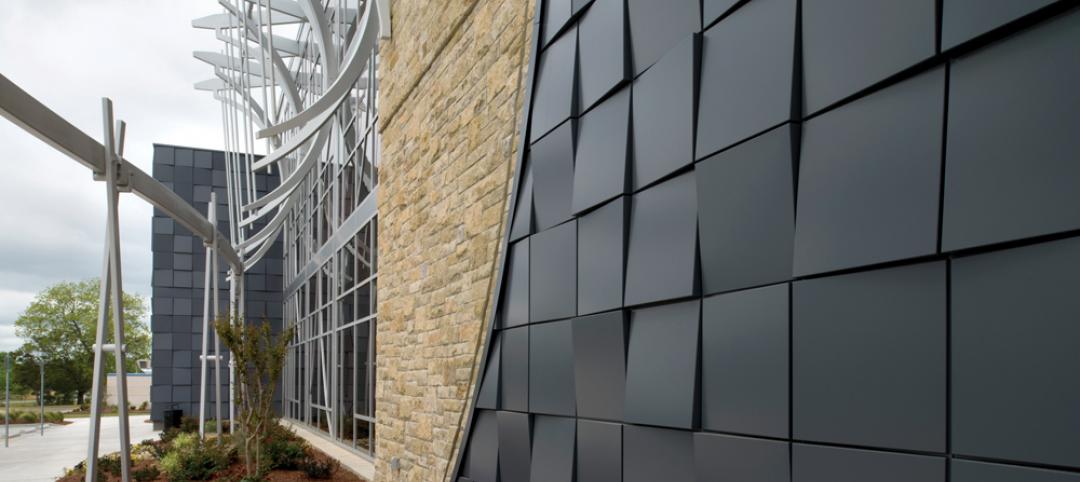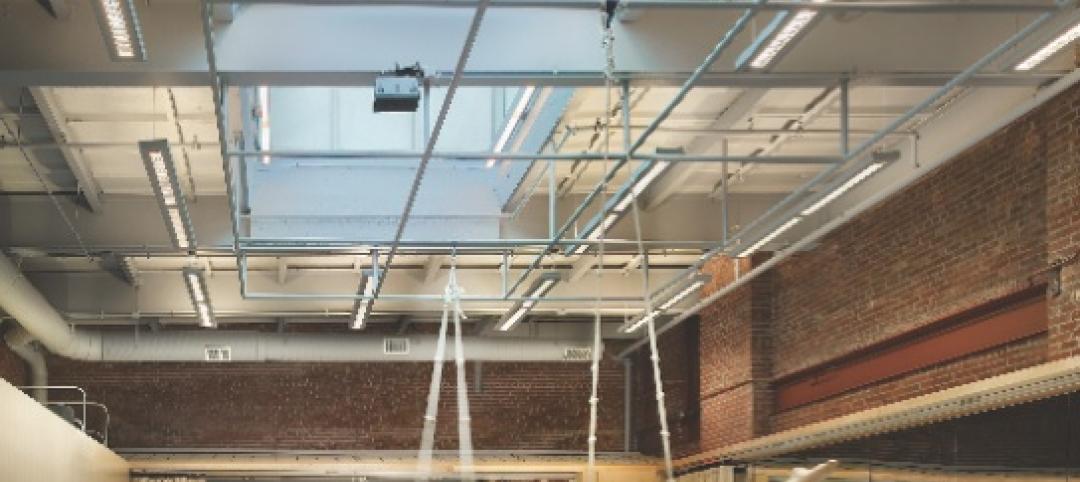Today, the U.S. Green Building Council (USGBC), developers of the global LEED (Leadership in Energy and Environmental Design) green building certification program, and Underwriter Laboratories (UL), the world’s leading safety and certification group, have announced an exclusive strategic partnership centered on building product transparency and occupant health and safety.
The partnership, the first of its kind in the building and certification industry, will roll out several targeted initiatives focused on increasing disclosure, awareness and transparency of building product composition and the manufacturing processes. The goal of the program is to accelerate market transformation and the overall quality and performance of buildings.
The first initiative of the partnership is the creation of a joint Environmental Product Declaration (EPD). EPDs are a standardized way of quantifying the environmental impact of a product or system. The joint USGBC-UL EPDs are a solution to increase transparency in building materials and products that are being used in our buildings, homes, schools, hospitals and other structures.
“UL is the foremost established leader in the EPD field and is uniquely positioned to provide third party assurance for the LEED green building program. We are thrilled to engage in this partnership which we believe will make a great impact across the market – both for manufacturers that want to establish themselves as leaders in the marketplace and for consumers who are increasingly demanding transparency in what is being used to construct and maintain the places where they live, learn, work and play,” said USGBC President, CEO & Founding Chair Rick Fedrizzi.
“Lifecycle impacts and human health are two of the key underpinnings LEED. We believe in buildings and products that limit environmental impact from conception to completion and that optimize the health of our families, colleagues and customers. UL is the world’s leading safety consulting and certification group, and our partnership will advance that mission enormously,” continued Fedrizzi.
“USGBC, creators and developers of the global LEED Green Building Rating system, are natural strategic partners for the work that UL is continuing to lead in the marketplace,” stated Sara Greenstein, president of UL's Environment and Information and Insights Business Unit. “As a global leadership standard for green buildings, USGBC’s commitment to material transparency as a key component of human health and wellness in LEED makes for a partnership that will reverberate throughout the industry.”
Buyers are demanding to know the full extent of a product’s environmental and health impacts,” continued Greenstein. “Transparency into the impacts of a product at each stage of its lifecycle has become a critical driver of purchases and specifications. Since this market is still evolving, and because the quality and consistency of data can vary greatly, we are working diligently to ensure that buyers and LEED users can trust that the information on which they rely is accurate, and that it complies with the new credit requirements. This partnership between USGBC and UL will help businesses, individuals and project teams better understand the products they are including in their building projects, and have greater clarity about how those products can contribute to LEED credits,“ Greenstein concluded.
Scot Horst, Senior Vice President for Global Innovation and LEED at USGBC stated that USGBC would continue to forge strategic alliances such as these in the marketplace in order to drive the customer experience toward increased consumer education.
“As LEED continues to evolve and we look at how USGBC can continue to transform the marketplace, we know that increased consumer education and market knowledge will drive consumer choices to more responsible and sustainable products. This is the first time USGBC is tying the built environment to products that will receive LEED credit, which is a huge step toward preventing green-wash and clear consumer market choice.”
Horst continued, “This partnership will accelerate LEED in the marketplace and help maintain its leadership standard through technical rigor and stringency. Equally important, it will incentivize those product manufacturers out there who are doing amazing things with their products and establishing themselves as leaders within their industry. We want to create a system to reward them.”
EPDs provide a credit achievement path in LEED v4, the newest version of the LEED rating system that is being released this week at USGBC’s annual Greenbuild International Conference & Expo. EPDs will help create avenues for future generations of LEED. “There is a great more to learn about life-cycle assessment and LEED and this USGBC UL partnership is the first step,” concluded Horst.
Related Stories
| Jan 13, 2014
Custom exterior fabricator A. Zahner unveils free façade design software for architects
The web-based tool uses the company's factory floor like "a massive rapid prototype machine,” allowing designers to manipulate designs on the fly based on cost and other factors, according to CEO/President Bill Zahner.
| Jan 7, 2014
Concrete solutions: 9 innovations for a construction essential
BD+C editors offer a roundup of new products and case studies that represent the latest breakthroughs in concrete technology.
| Jan 6, 2014
An interview with Jerry Yudelson, President, The Green Building Initiative
Green building consultant Jerry Yudelson has been named President of the Green Building Initiative and the Green Globes rating program. BD+C's Robert Cassidy talks with Yudelson about his appointment and the future of Green Globes.
| Dec 18, 2013
Firestone Building Products acquires Spain-based Terrassa in global expansion
Firestone has announced that it has agreed to acquire the manufacturing assets and brands of Terrassa, Spain-based Giscosa and Giscolene®. The acquisition of the Giscosa Ethylene Propylene Diene Monomer (EPDM) plant near Barcelona expands Firestone’s global manufacturing and distribution capabilities and product offering.
| Dec 16, 2013
Is the metal building industry in a technology shift?
Automation is the future you can’t avoid, though you may try. Even within the metal building industry—which is made up of skilled tradesmen—automation has revolutionized, and will continue revolutionizing, how we work.
| Dec 10, 2013
16 great solutions for architects, engineers, and contractors
From a crowd-funded smart shovel to a why-didn’t-someone-do-this-sooner scheme for managing traffic in public restrooms, these ideas are noteworthy for creative problem-solving. Here are some of the most intriguing innovations the BD+C community has brought to our attention this year.
| Nov 27, 2013
Wonder walls: 13 choices for the building envelope
BD+C editors present a roundup of the latest technologies and applications in exterior wall systems, from a tapered metal wall installation in Oklahoma to a textured precast concrete solution in North Carolina.
| Nov 27, 2013
University reconstruction projects: The 5 keys to success
This AIA CES Discovery course discusses the environmental, economic, and market pressures affecting facility planning for universities and colleges, and outlines current approaches to renovations for critical academic spaces.
| Nov 22, 2013
Health Product Declaration Collaborative to develop protocol for third-party verification of HPDs
Seven leading product sustainability assessment companies partner with the HPD Collaborative to develop the verification and quality assurance protocols.



